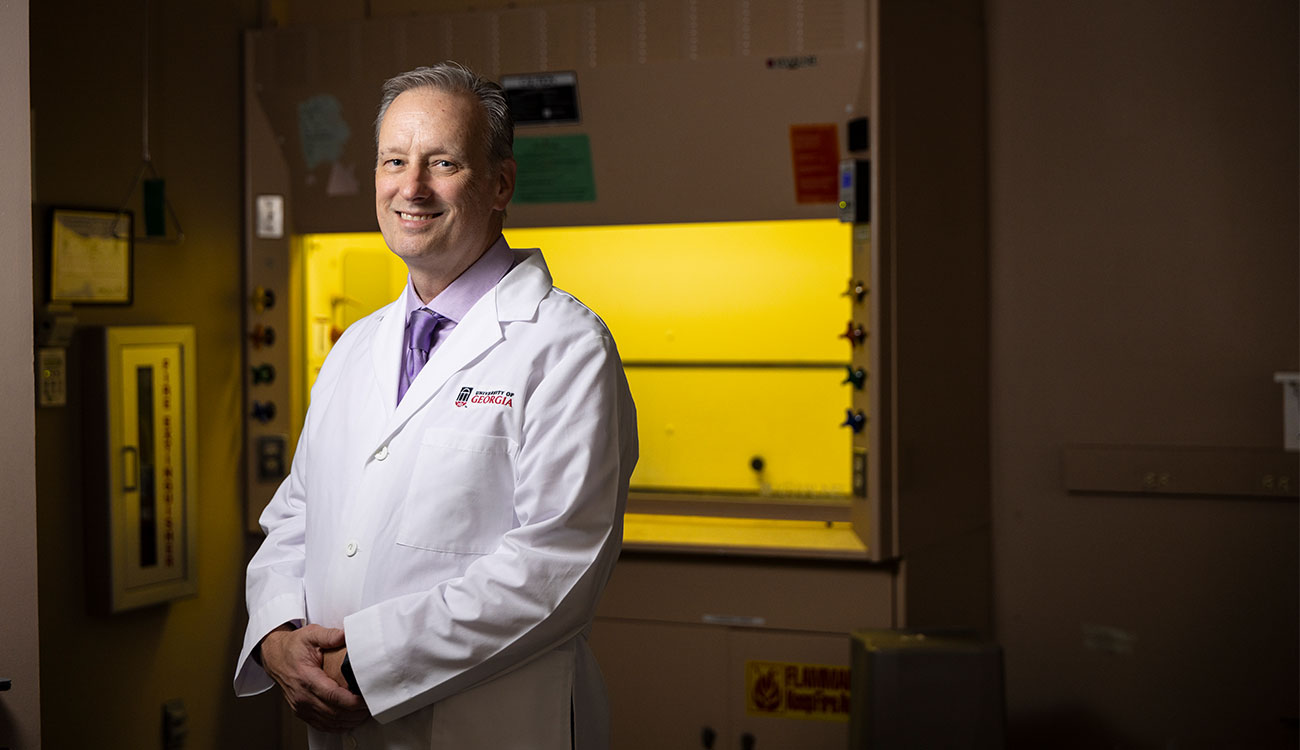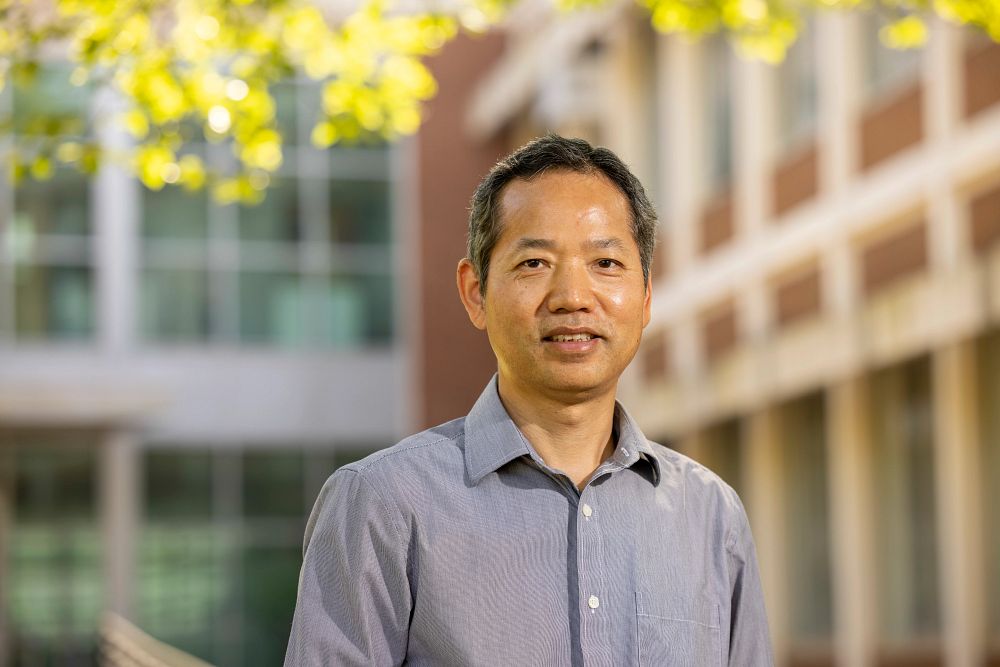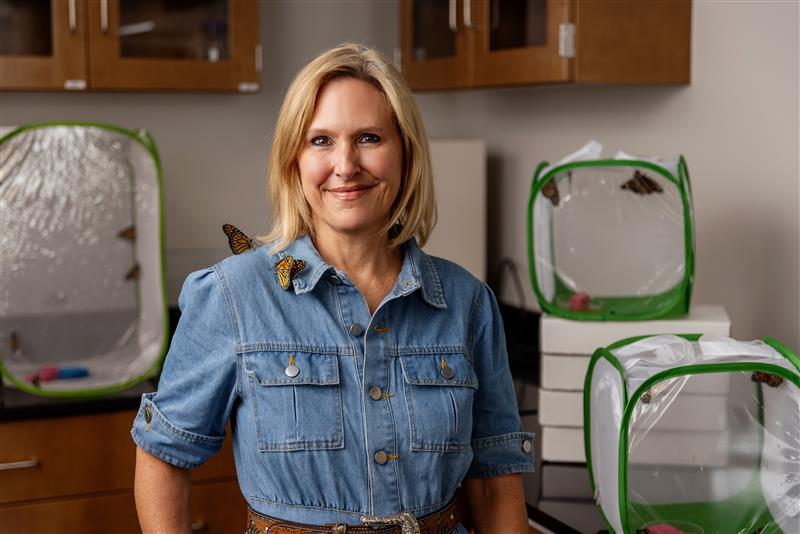 CAES News
CAES News
Products to Market
For the third consecutive year, the University of Georgia ranked No. 1 among U.S. universities for number of commercial products brought to market by industry partners based on university research, according to an annual survey conducted by AUTM. These products span a range of industries including poultry vaccines, biodegradable plastics, virtual reality tools for disaster preparedness, biomedical research tools and new plant varieties of turfgrass, blueberries, wheats — and peanuts, developed by newly elected National Academy of Inventors Fellow Bill Branch — to name a few.









